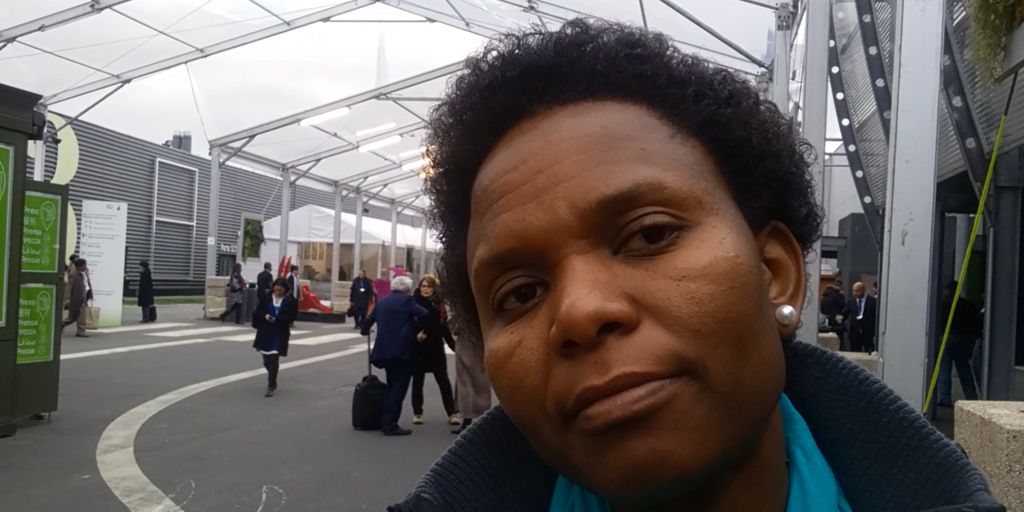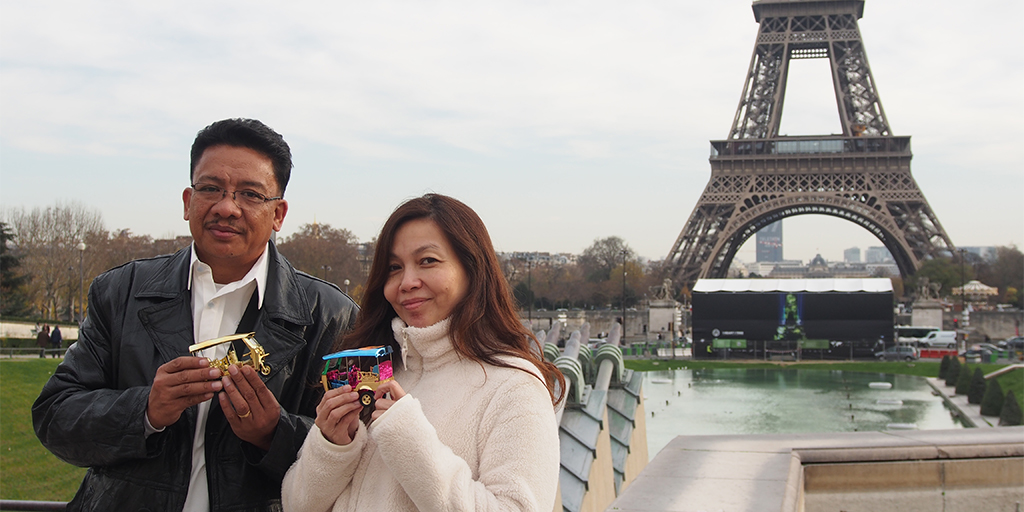COP21: Three perspectives on the Paris climate deal
In Paris, the world’s powers have come together and agreed a global climate deal. Unfortunately, it is a deal that has short-changed the poorest and most vulnerable people as they struggle with the reality of rising sea-levels, floods and drought.
As the talks end, we speak to three people from around the world to get their highlight of COP21, their views on the outcomes of the climate talks, and what they think the next steps for the climate movement are after Paris.
Chloe Bourguignon, Oxfam France volunteer from Strasbourg, France.
While there were many inspirational moments this year, the biggest one for me came ahead of the COP because it made me realise how the movement really was growing. The highlight was being part of the alternative village; in my city over 10,000 people and 130 organisations participated and it was one of the first times when I saw so many people working on different projects come together for the fight against climate change.
For me, the Paris deal is a disappointment but not a surprise, and it only makes me feel like we must push on with the work we've started. As part of a local group in France, I feel we have a really strong dynamic with our volunteers and also with lots of organisations across France. This year, although we know we may have different focuses, it’s really clear that overall we can come together and we need to continue this fight.
Chloe here as part of the Oxfam France demonstrations on the streets of Paris
As for what comes next, the aim for me is that we stay focused and together. We need to work out how we keep putting pressure on some topics and continue to bring more people into the movement – to keep it as international as possible, standing in solidarity and working with those being hit hardest by climate change to ensure we can help them to raise their voices on their experiences and solutions. In Strasbourg we'll continue to work together and use climate change as the single fight that exacerbates all others – especially inequality.
Dorah Marema, from GenderCC Southern Africa
The greatest moment for me this year, after many years of work on climate change, was hearing that our Sustainable Livelihoods project won an award at the Women and Gender Constituency for a gender-just solution to climate change. This means a lot for our communities and partners where we are implementing the project. It also encourages the communities to understand that they too are part of the solution to climate change.
The Paris deal has the potential to provide a framework within which our country could start tackling the issue of climate change. It will help facilitate the finance desperately needed to adapt to the already massive disasters arising from a changing climate and to cut the greenhouse gases that are causing this runaway problem. It is an important agreement because even though we all experience climate change differently, it affects everyone.
As a result, it has to be tackled by the broader global community. Our communities are facing so many climate disasters, for example the drought and heatwaves ravaging my country South Africa. There is little hope of growing anything this year, there are the frustrations of water shortages, the many diseases and sicknesses brought by the heatwave and lack of water…I could go on and on. I know that we need to do something urgently but I don't know how this Paris agreement could translate into immediate relief for many of these communities, villagers, smallholder farmers and millions of women and children who are the majority of the victims of these disasters.

Dorah speaking to camera inside the conference centre at COP21
Since I have been here in Paris, it seems there is really little or no commitment and political will from the developed nations to make sure that this agreement is bold in its intention and ambitious in its targets in terms of the finance.
What was not very present for me in these global negotiations is the human side or the human face of the climate change problem. The tension here amongst countries is largely about the economic implications and they forget that if people or humans are wiped off the face of the earth, there will be no countries or nations to develop.
For us the fight will continue at the national level where we will continue to work with communities to lobby our government. They have to be the ones that are pressurised so that they can in turn pressurise the global community to act. We need to see the political will to facilitate access to funds, we need to see small-grants for the smallholders farmers, particularly women. We need to hear immediately when they come back from COP21 what happened there, what is it that we can expect from them in terms of financial assistance and programmes to build capacity of women and grassroots communities to facilitate adaptation.
Shubert Ciencia, Economic Justice Policy and Campaigns Manager with Oxfam in the Philippines
Being from one of the countries that is being hit hardest by climate change and being part of the biggest climate march ever in the country was inspirational and helped affirm Oxfam's leadership in the climate change discourse in the Philippines. In Paris as part of the Philippines government delegation we continued to fight for the poorest and hardest hit – pushing hard to limit warming to 1.5 degrees, calling for money for the poorest to adapt their lives to climate change, and also pushing hard for the loss and damage part – which is calling for money and support for people who lose livelihoods and lives to climate change and cannot adapt.

Shubert with Riza (from the Oxfam East Asia team) with their tuktuks under the Eiffel Tower
The Paris deal should provide assurance to all the vulnerable communities of the world that they are not being forgotten; it should be a beacon of hope to those who are suffering most from the adverse effects of climate change; it should be the moment when the world set aside their parochial interests and take that one big bold step for humanity.
But the deal is mere paper at this point in time. It should go beyond political postures to concrete and progressive action and implementation. Also after running the TuktukToParis campaign that brought, a tuktuk all the way to Paris (albeit a toy one!) carrying over 5,000 people’s voices, it was really an amazing moment for me to see this under the Eiffel Tower.
Where to from here? In the words of the Singaporean minister: "let us stop scaring each other," and the Brazilian minister: "let us start with the green lines instead of the red lines."
COP21 is over but Oxfam will continue to work on climate change and to fight for the action needed to support the poorest and most vulnerable people around the world. Stay up to date with our work by joining us on Facebook and on Twitter.

